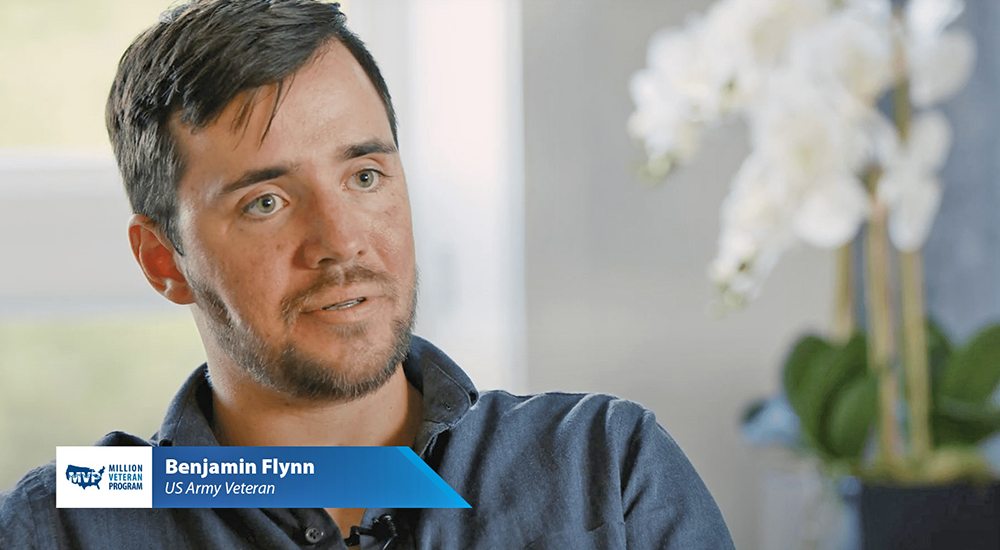Benjamin Flynn was in his seventh-grade classroom when he watched the twin towers collapse on Sept. 11, 2001. Later in the day, he received the tragic news that some of his family members died in the attack. In that moment, his grief turned into resolution and purpose.
As soon as Flynn was old enough to join the military, he would sign up to serve and protect his country.
Flynn deployed to southern Afghanistan in 2013 as a satellite communications operator with the 198th Expeditionary Signal Battalion. “One of the things they hammered on was that they appreciated we were enlisting in the middle of a war which I didn’t really think of ‘til after the fact,” Flynn said.
The stress of war at home
The stress of his deployment and military service followed him home from his time in Afghanistan. He was exhibiting signs of posttraumatic stress disorder (PTSD).
“I was struggling with posttraumatic stress for about a year before I started seeking treatment,” he said. In 2014, Flynn survived a suicide attempt and remained in recovery for several months. Now, he uses his experiences to help others.
The road to recovery… giving back
Right out of recovery, Flynn began volunteering to help other Veterans with mental health concerns. “I started doing volunteer work and advocating for other Vets to try and prevent other guys from being in the same boat that I was,” he added.
In 2017, he attended the Disabled American Veterans National Convention in New Orleans and a large logo caught his eye. He talked with the staff, learned more about the Million Veteran Program (MVP), and then rolled up his sleeves, eager to help his fellow Veterans.
Helping future Veterans is one of the main reasons Flynn decided to enroll in MVP. “The thing that inspired me to join MVP is that even though I’m no longer in uniform, I’m not deployable anymore. I look at it as a way to do my part and make sure the men and women that served alongside me, before me, and after me are all properly taken care of,” he said.
Make a difference for Veterans: Join the Million Veteran Program today
The Million Veteran Program, VA’s largest research effort, is inviting over one million Veterans to help us understand how genes, lifestyle and military experiences affect your health and wellness.
MVP is working to better understand the genetics of PTSD, depression, anxiety and suicide risk.
We’ve studied:
- Genes related to re-experiencing traumatic memories, one of the symptoms of PTSD.
- Ways to better predict suicide attempts and improve suicide prevention interventions.
Thanks to Flynn and now more than 900,000 Veterans in the Million Veteran Program, we understand certain health conditions better than we ever have before.
To learn more and sign up, visit mvp.va.gov or call 866-441-6075. You do not need to receive VA health care to join VA’s Million Veteran Program.
Topics in this story
More Stories
The program provides physical rehabilitation through telehealth, improving and sustaining physical function for older Veterans.
Our most recent annual report of Veteran suicide data highlights seven strategies to support Veterans.
Pain is like an alarm system; learn to reset the alarm with this 13-minute Mindfulness for Chronic Pain practice.






why can’t i get treatment for bladder and stomach issues?